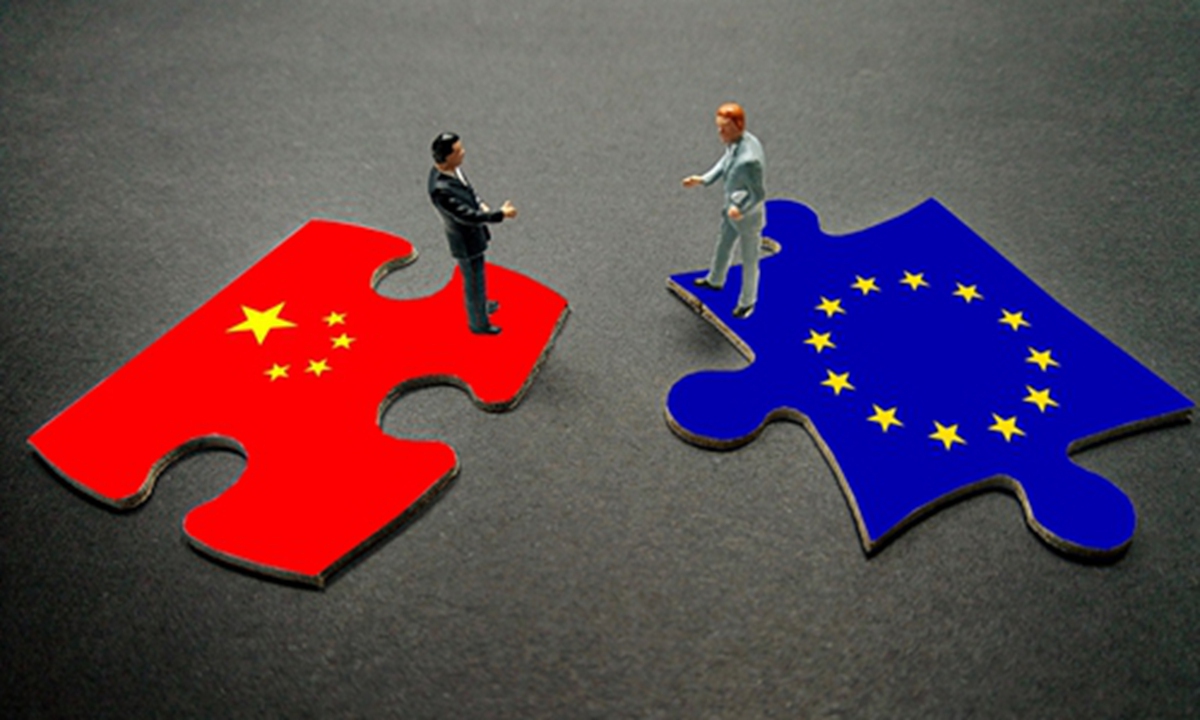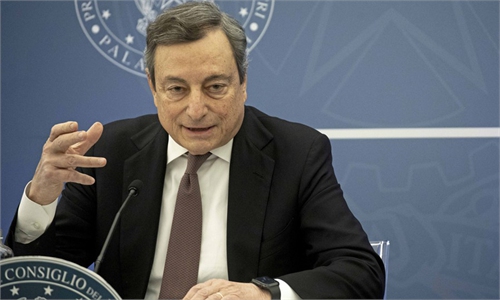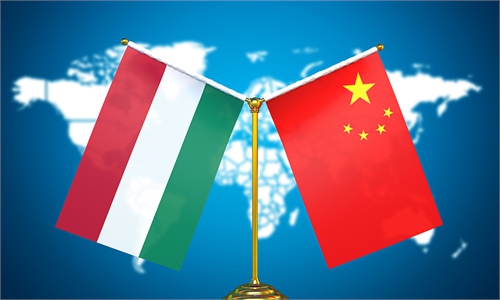
Photo: VCG
The EU and China will hold a high-level trade dialogue on Tuesday, which is expected to focus on discussions of a number of global economic challenges, including food security and energy prices, supply chains, financial services, and bilateral trade and investment concerns, the South China Morning Post reported on Monday, citing a European Commission representative.At a time when there is great uncertainty in the global economic outlook, it is encouraging for China and the EU to have the opportunity to sit down and discuss specific economic and trade issues, which could also be deemed as a positive signal for bilateral relations.
There is no denying that the relationship between China and the EU has encountered twists and turns amid major international developments, such as the China-US tensions, the COVID-19 pandemic, and the Russia-Ukraine conflict.
Yet, it is perhaps the grim economic prospect that is actually increasing the urgency for China and the EU to put aside their differences and seek practical cooperation and win-win results.
Last week, the euro briefly fell below parity with the US dollar. While it was a rarity unseen in the past two decades, the euro's continued weakness these days came as no surprise. The Eurozone is mired in multiple economic predicaments including high inflation, volatile energy supply due to the Ukraine crisis, and a growing risk of recession.
Eurozone inflation surged to a record high of 8.6 percent in June, the highest ever, with nearly half of the member countries in the bloc reaching double-digit inflation, according to data from Eurostat. Moreover, the European Commission has cut its forecast for EU economic growth in 2023 to merely 1.3 percent, far lower than the previous 2.3 percent estimate.
The economic challenges facing China are significant too. Due to severe COVID-19 resurgences, China's GDP grew 0.4 percent year-on-year in the second quarter, the slowest pace since the coronavirus outbreak in 2020. It is undeniable that the slow growth rate in the second quarter will make it harder for China to achieve its annual growth target of 5.5 percent.
At this juncture, it is crucial that China and the EU sit down and have a pragmatic dialogue. The past few years saw a shift in the relationship between China and the EU, with an apparent cooling in their cooperation in investment, trade and financial areas.
To expand bilateral trade ties and resume constructive cooperation, the two sides need to build a consensus on pragmatism. In other words, if both sides have the willingness to seek pragmatic cooperation based on mutual respect and benefit, then China-EU economic and trade cooperation should be free of impact of the US-led ideological confrontation.
Specifically, it means EU cannot provoke China's core interests. There are differences between China and the EU when it comes to human rights and democracy issues, which is understandable but should not affect practical economic cooperation. Also, individual EU members should not hold hostage the interests of the entire EU by extending their conflict with China to the bloc.
China and the EU have always been important trading and investment partners, with strong resilience and vitality in bilateral trade despite the pandemic. It would be regrettable if anyone turns a blind eye to the resilience, especially at a time of great economic challenges facing both sides.
China-EU economic and trade cooperation needs pragmatism, which not only serves the core interests of both sides, but also creates conditions for both sides to resolve their most pressing economic issues.
The author is an editor with the Global Times. bizopinion@globaltimes.cn




